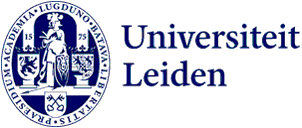Joey Zuijderveldt won first prize in the ‘Schild-De Groen Onderzoeksprijzen' for cancer research
One of our PhD candidates at the LACDR, Joey Zuijdervelt, recently achieved recognition by winning the first prize in the ‘Schild-De Groen Onderzoeksprijzen’ for cancer research. His award-winning master’s thesis explored glioblastoma multiforme through an innovative orthotopic zebrafish xenograft model, a project that involved engraftment of tumour cells from mouse glioblastoma into embryonal zebrafish brains, allowing the live imaging of tumour growth dynamics and interactions within the tumour microenvironment. “Glioblastoma is a particularly nasty tumour, it’s practically untreatable even after decades of research,” Joey explains. “The standard treatment for glioblastoma involves surgical resection to remove as much of the tumour as possible, yet it's impossible to eliminate all tumour cells completely,” he adds. “Ultimately this leads to a more aggressive recurrent tumour that’s even harder to treat than the primary one was.”
Joey’s research utilized the renowned zebrafish model to study how glioblastoma cells interact with immune cells in the brain, specifically microglia. These microglia serve as safekeepers of the brain, and they should destroy all potential dangers. His research, however, shows that these immune cells are not only attracted to the glioblastoma cells but also appear to be co-opted by the tumour to support its growth and survival.
Joey explains the significance of his findings, "That immune cells are recruited to the tumour microenvironment and actively contribute to its maintenance isn't new. What's groundbreaking about our model is the ability to visually track the interactions between microglia and tumour cells from various patients and stages of pathology directly within the brains of live zebrafish larvae." He adds. “Being able to track these processes in a living model is extremely valuable.”
The research is continued in consortium that includes IBL, LIC and NKI, among others. “Continuation is the most important thing in research. It's all too common for projects to lose momentum when a researcher moves on or a student project concludes. Knowing that my contributions have helped secure funding that enables the shared efforts of these research institutions is beautiful," Joey shares. “I’m hopeful that these researchers will pave the way for new treatments targeting tumour-associated microglia combine these with current treatments to increase their efficiency.”
Joey has now turned his focus towards neurodevelopment, chronic pain, and rare disease modelling. His innovative work has not gone unnoticed, earning him an invitation to speak at the ASXL Research Symposium this July in Baltimore, USA, marking a new chapter in his scientific journey.

